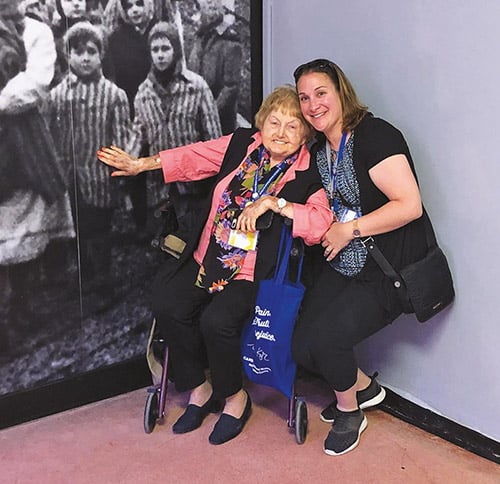
Hate. This four-letter word—often underestimated—is arguably much more dangerous than any curse word our children can learn. We are not born with hate in our hearts. It is something that is taught, something that is passed down to our children. Often it is done innocuously, like when we say, “I hate this song” or “I hate this sports team.” But once we utter the word, it’s out there for our children to hear, and we can’t take it back. It enters the realm of acceptable speech. From there, it takes on a life of its own.
This four-letter word, which may have started out being spoken innocently, takes on a new meaning. “I hate my boss,” you utter, after a particularly difficult day at work. Unbeknownst to you, your child is there, listening, learning, as children always do. Now the child has learned to apply this four-letter word to another person. She comes home from school one day after a fight with a friend and says, “I hate him,” because, in that moment, she doesn’t know how else to express the anger or disappointment she feels towards another human being. Now this four-letter word has become powerful. She has come to realize it can be used to inflict harm on another person, to make them feel sad or unaccepted.
As parents, most of us never meant to introduce this four-letter word to our children to be used in a harmful way. One might say it’s an occupational hazard. However, there are people in the world who have always recognized the power of hate. They see it as an opportunity—not to blow off steam when their team loses in the championship game or to vent after a long day at work, but to capitalize on that feeling a child gets the first time they realize they can use hate to inflict harm. Because more than anything, that moment is the inflection point in the lifespan of this particular four-letter word. That moment when hate can either becomea a harmless, albeit poor, word choice or when hate becomes something so much more—a way to assert power over another person or group of people by spewing malicious venom—that’s the moment that will change the trajectory of our society.
February 25, 2023 was one of those pivotal moments. Over the past month, several known antisemitic groups encouraged their followers to participate in a “National Day of Hate” on that date. This event was touted online as a “call to action” for hate groups all over the country to coordinate their in-person efforts to spread hatred for the Jewish people throughout the United States. These efforts included demonstrations, fliers and other forms of propaganda, banner drops and vandalism. Rather than try and sugarcoat this vile display of intolerance as had been done in the past, these groups decided to call it exactly what it was, a day dedicated to spreading hatred. It was the ultimate casualty of a society that has let this four-letter word seep into society, underestimated and unchecked.
I have stood in the gas chambers at Auschwitz with survivors of the Holocaust. I have walked through the former barracks of concentration camps that now serve as memorials and house personal artifacts of the victims: clothing, shoes, prosthetic limbs, even human hair. I made a promise to Eva Mozes Kor, z”l, a survivor of Josef Mengele’s infamous twin experiments, that I would never stand idly by and allow this to happen again. Eva taught me that even in the face of the worst that humanity has to offer, hope can be your greatest strength.
And so, in memory of Kor and the 6 million Jews who died because of hate, I proposed that February 25, 2023, should be dedicated to another four-letter word: hope.
Education is our most powerful tool, and it is our best defense against hatred. If hate can be taught, then so can love and peace and acceptance. If we teach our children about the dangers of intolerance, of “othering,” of labeling and persecuting those who are different from us, then we can use those lessons to ensure that our children don’t repeat the mistakes of the past. Let’s change the narrative by replacing the four-letter word.
Let us hope for a world without hate, and for a better future.
Dr. Stacy Gallin is the founding director of the Maimonides Institute for Medicine, Ethics and the Holocaust (MIMEH). She is also a senior fellow at the Center for the Study of Law and Religion at Emory University









